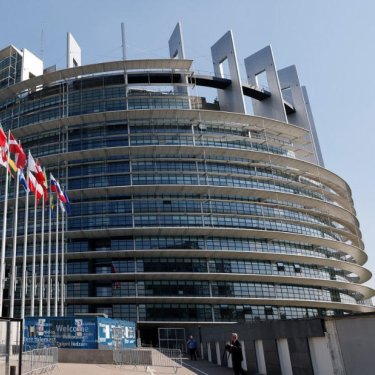European Parliament calls for system for protecting democratic information spaces recommended by RSF

Two reports by the European Parliament are calling for the creation of a system for protecting democratic information spaces of precisely the kind devised and recommended by Reporters Without Borders (RSF). This is a major step forward, RSF says.
The globalisation of news and information leads to an imbalance in which “closed” countries control their information space while democratic countries have open information spaces. This asymmetry allows dictatorial and authoritarian governments to export their propaganda while cutting themselves off from independently reported news and information, thereby giving themselves an advantage that weakens journalism and, more broadly, democracy.
Since 2021, RSF has been calling for a system for protecting democratic information spaces that has two pillars: equal treatment for all broadcast media outlets broadcasting in the European Union (UE), and a reciprocity mechanism based on universal free speech principles that aims to achieve the maximum possible openness.
The system provides a proportionate and strictly regulated response to malicious propaganda and disinformation activities by third countries. Two European parliamentary committees are now calling for the EU to move in this direction.
Today (1 June), the European Parliament approved by a very large majority (469 votes for, 71 against and 75 abstentions) a report by the special committee on foreign interference in all democratic processes in the European Union, including disinformation. This report calls for the creation of “mirror clauses” whereby “the openness of the European information space to third countries would be proportionate to the access European media outlets have in these countries.” This is based on the second point of RSF’s proposal.
RSF’s entire proposal has been incorporated into a report by Isabel Wiseler-Lima on protecting journalists worldwide that was approved by the European Parliament’s foreign affairs committee on 24 May. The report says the system for the protection of democratic information spaces should be “built on two pillars: 1) equal treatment – for all audio-visual outlets broadcasting in the EU; 2) reciprocity – openness of public space for EU broadcasters in third countries.” The European Parliament is due to vote on the report in plenary session in July.
“A legal framework adapted to the new technological status quo is urgently needed to protect the information spaces of democratic countries against propaganda attacks and destabilisation operations. We are pleased to see the European Parliament moving in this direction. The reciprocity mechanism, which seeks the maximum mutual openness, must be translated into law without delay. We call on MEPs and member states to introduce such a mechanism into the proposed European Media Freedom Act currently under discussion.
RSF is also pleased that the European Parliament’s foreign affairs committee has welcomed the RSF-launched Partnership for Information and Democracy, to which 50 democratic countries including 25 EU members have so far signed up, and which seeks to impose democratic principles in the digital domain.
The committee supports the recommendations made by the Partnership’s implementing body, the civil society-run Forum on Information and Democracy, which has proposed regulatory frameworks in reports on infodemics, sustainable journalism, accountability regimes for social media and pluralistic algorithms
